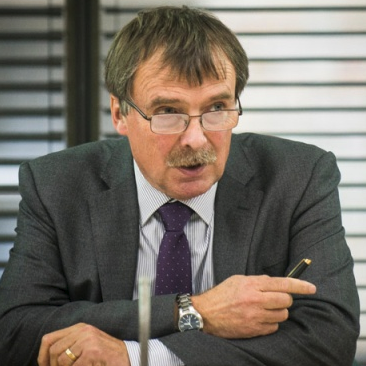Alan Whitehead – 2022 Speech on Burning Trees for Energy Generation
The speech made by Alan Whitehead, the Labour MP for Southampton Test, in Westminster Hall, the House of Commons, on 6 December 2022.
I have listened very carefully to the debate and I congratulate the hon. Member for North Devon (Selaine Saxby) on securing it.
Overall, we have had a thoughtful debate about the difficult issues facing UK energy production, including what sources it is right or wrong to use, subsidies that might be put in place, and arrangements for the production of comparatively low-carbon energy that could provide power more cheaply and efficiently, as well as, most importantly, on a lower carbon basis.
As the hon. Member for Mid Derbyshire (Mrs Latham) mentioned, undoubtedly a while ago biomass was thought to be a simple proposition for power production that was fine in terms of the overall carbon cycle: it uses trees that grow again, thus balancing the CO2 put into the atmosphere through burning. Actually, the same is true of gas power, for example, only carbon has been sequestered in the ground over many millions of years and now we are putting it back into the atmosphere. It is all about cycles and the carbon replacement period, which is an important initial point to consider. The debate has moved on considerably, because people are thinking carefully about what those cycles mean for carbon replacement.
We need to question if it is ever right to use thermal means to produce power. We currently have 200 biomass generators in the UK, producing 88% of UK power. In addition, whether or not we regard burning wood waste and other materials for power as unacceptable, we have 54 energy and waste plants across the country that produce some power, half of which produce a lot of heat that can be used for district heating purposes. They ought to come into the carbon balance equation that we are trying to achieve.
We have heard today an incontrovertible point: taking whole trees, burning them for power and transporting the product of those trees across large parts of the world is clearly not the best use for them. That is particularly the case if those whole trees have not been grown in farmed or managed forests but in primeval ones, where they have captured carbon for many centuries, and are being clear felled and used to fill a hole in energy production.
Barry Gardiner
Would my hon. Friend also accept the distinction that a managed forest for production timber and biomass has nowhere near the biodiversity that there is in the primary forests that we have been talking about? It is a matter that we cannot look at simply in terms of carbon emissions; we have to look at it in terms of wider sustainability and the biodiversity of species.
Dr Whitehead
Yes, indeed, we need to take careful account of the points my hon. Friend has made about wider biodiversity issues. However, we have sources of material—starting with the idea of managed forests, under certain circumstances, or energy crops, under other circumstances—that are much shorter in their use and carbon sequestration, such as miscanthus and short-rotation coppicing of willow. Those can be produced with a very short time of burning and resequestration. However, as my hon. Friend has said, there may be other environmental consequences attached to the practice.
Wera Hobhouse
Is it not the outcome of today’s debate that burning wood or biomass is neither low in carbon nor a renewable source of energy—so why are we still subsiding the industry?
Dr Whitehead
That was the case I was trying to pick apart. Is it right that we should ever burn anything for power? If we burn some things for power, what are the circumstances under which we burn them and what are the constraints we have to put on their burning? One of the issues is just how much we pay for that burning. If there are better uses for the subsidies we might put towards that burning, then we should undertake those instead. We need to be very mean in terms of the resource we put into subsidies so that we get the best outcome for those subsidies.
We cannot draw an overall conclusion today about the wide issue of what is waste, whether it is appropriate to burn it under any circumstances and how we manage that waste stream. Clearly, with whole forests—even if they are managed—the production of timber that goes into houses and buildings is a much better way of sequestering carbon from that timber than burning it. Waste material, on the other hand, does not have the same uses, although the hon. Member for North Devon mentioned the wood panelling industry, where there are certain uses for roundwood and other timber that can sequester carbon in a better way than burning it. However, we still have the issue of whether there is a role at all for biomass burning and waste burning in future.
We have also had a discussion about CCS, on the back of burning wood, residual material and waste. That applies to energy from waste just as it does to biomass use. Of course, the Climate Change Committee is quite keen on BECCS. The idea is that the whole process can become net negative as far as contributions to net zero are concerned, and we are producing a net negative contribution to the overall carbon balance, providing that CCS works well and sequesters as much carbon as it is supposed to.
Sammy Wilson
This is being put forward as another way of trying to deal with the unfortunate consequences of the CO2 emissions from the Drax station. First, carbon capture and storage is expensive. Secondly, it would use about a third of the power that is produced to capture the gas.
Dr Whitehead
This underpins just how wide this debate really is and what we need to think about: for example, is CCS a reasonable way to go forward in sequestering emissions over the long period and how much is that going to cost overall in subsidies? My conclusion is that, yes, there is a role for biomass and for energy from waste, with the proper constraints and the proper circumstances under which we provide that power. It has a role, but not a large role. On the other hand, we need every source of low and lowish carbon energy that we can get at the moment, so we need it to make a contribution, but not a large one, to our overall power arrangements.
I look forward to the rather delayed biomass strategy that the Government are about to publish, which perhaps will give us a much better understanding of these issues as they combine together. I hope the Minister will give us a foretaste of what that biomass strategy will look like so that we can move this debate forward.


